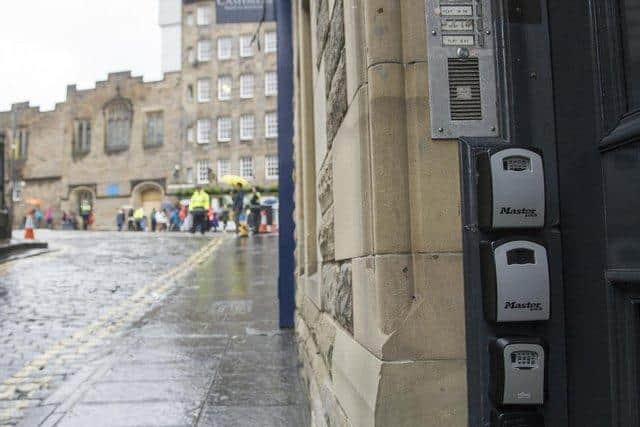Airbnb say Edinburgh crackdown on short-term lets will have little effect
Let us know what you think and join the conversation at the bottom of this article.
On Wednesday August 11, council chiefs looking to combat antisocial behaviour, housing shortages and gentrification took their first step towards a crackdown on Airbnbs and other short term lets by launching a consultation with residents on a suggested ‘control zone’.
The control zone would span the entire city, and would mean AirBnB and other short term let owners must acquire planning permission to use the property for this reason.


During this process, council officers and councillors will be able to determine whether a short term let is suitable based on density, residential amenity and housing shortages in the area.
The control area would be citywide, as opposed to focussing on the city centre and Leith, where the majority of STLs are situated, because of fears this would lead to a high concentration of STLs in neighbouring areas.
Under the proposals, if a home has been changed to secondary letting and continually operated as a STL for more than 10 years before a STL control area is designated and no enforcement action has been taken during that time, planning permission would not be required.
However, Airbnb bosses have hit back at Edinburgh City Council’s proposals, saying they are ‘concerned about the impact’ and it won’t affect the majority of hosts anyway.
Patrick Robinson, director of public policy at Airbnb, said: “We don’t expect this proposal to affect the majority of hosts, who typically rent their own home on a part-time basis for less than 60 nights a year, with around half saying that the additional income is an economic lifeline.
“We are concerned about the impact these measures could have on some Hosts who bring great benefits to Scotland, and we look forward to engaging with Edinburgh City Council to secure the best outcomes for everyone.”
READ MORE: Edinburgh pensioner shocked as naked couple enter wrong Airbnb flat and have sex in front of her
Airbnb owners in the capital are also under pressure from the Scottish Government, which is currently consulting on legislation to introduce a licensing scheme for STL operators.
According to PLACE, a grassroots network of Edinburgh residents fighting back against short term lets, those who remain in areas with high concentrations of holiday lets are faced with antisocial behaviour, increased rent, and the dissolution of their communities.
However, Fiona Campbell, chief executive officer of the Association of Scotland’s Self-Caterers, says ‘communities are being hoodwinked’ into believing regulation will solve these problems.
Ms Campbell said: “Edinburgh Council’s draft proposals for a short-term let control zone covering the entire city are wholly disproportionate and lack an empirical evidence base to substantiate claims that such accommodation has reduced housing stock.
“Furthermore, their proposals appear to rely on pre-pandemic listings from one online platform only and this does not provide an accurate reflection of the situation.
“Self-catering properties have been a long-standing presence in the capital for decades, enhancing the tourist offering and boosting the local economy, and should not be used as a convenient scapegoat for policy failures elsewhere.
“Communities are being hoodwinked into believing that regulating short-term lets out of existence will act as a panacea when in reality, we have failed to build enough affordable homes or bring large numbers of empty properties back into use.
“Last year, self-catering generated £50m for Edinburgh’s economy. For a city that is renowned for its hospitality, it is very disappointing that local policymakers are looking to solve multifaceted housing challenges in Edinburgh by concentrating on tourist accommodation and damaging small businesses in the process.
“The ASSC looks forward to supplying evidence to the upcoming consultation by the Council and highlighting the need for balanced, targeted and proportionate regulation for the benefit of all concerned stakeholders in the city.”